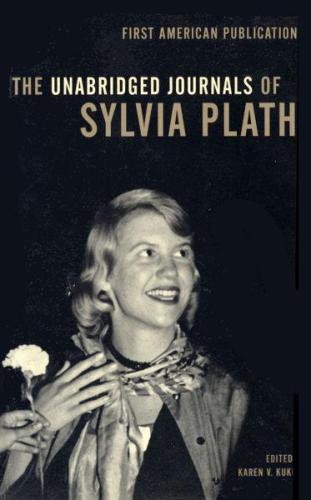
The Unabridged Journals of Sylvia Plath
کتاب های مرتبط
- اطلاعات
- نقد و بررسی
- دیدگاه کاربران
نقد و بررسی

Starred review from October 16, 2000
This book constitutes a literary event. Over 400 pages of never-before-published personal writings make this first comprehensive volume of Plath's journals and notes from 1950 to 1962 indispensable reading for both scholars and general readers interested in the poet. Plath's journals were previously published in 1982 and heavily censored by her husband, poet Ted Hughes. But even the diary entries that have been available to the public demand re-reading in the context of fresh materials. In the newly revealed writings, we see an even more complex, despairing psyche struggling to create in the face of powerful demons. Plath's intense bitterness towards her mother emerges in full force, particularly in her notes on her psychoanalysis by Ruth Beuscher in Boston from 1957 to 1959. Plath's writing is by turns raw, obsessive, brilliant and ironic. Her sensitivity about rejections from magazines, her struggle to establish a daily routine of reading and learning, and her ongoing attempts to ward off depression provide reminders of her drive and ambition, despite her feelings of inferiority with respect to her husband. This work constitutes an invaluable primary source as well as a thoroughly engrossing narrative whose omissions are sometimes as important as its inclusions. (There is, for example, surprisingly little on Plath's sudden marriage to Hughes.) Strong print media attention focusing on new revelations will drive early sales of this important work, and it should become a staple backlist title. Editor Kukil is assistant curator of rare books at Smith College, where Plath was an undergraduate and later a lecturer.

September 15, 2000
Plath's admirers should prepare themselves for another dose of her bitter medicine: Anchor Books has announced the U.S. publication of her "complete, uncensored journals." (This unabridged edition appeared first in England.) Judiciously and unobtrusively edited by curator Kukil, who oversees the Plath Collection at Smith College, the text includes the portions suppressed by Plath's husband, the poet Ted Hughes, now deceased, when he authorized an earlier American edition. About two-thirds of the writings, which cover the last years of Plath's fevered life, have not been available to the public previously. All of the difficulties and contradictions that made Plath a literary icon are contained in these intense, confessional revelations, including her anger, egotism, frustrations, self-destructiveness, and passionate need to express herself. Certain to generate dozens of new academic papers, this is essential for anyone engaged in Plath studies.--Carol A. McAllister, Coll. of William & Mary Lib., Williamsburg, VA
Copyright 2000 Library Journal, LLC Used with permission.

October 1, 2000
Plath kept a journal for most of her sadly shortened life, recording every nuance of feeling and thought with wit, passion, and despair, singlemindedly pursuing literary mastery. Her late husband, the poet Ted Hughes, began preparing Plath's journals, excepting those he destroyed after her suicide, for unexpurgated publication, a project now brought to fruition in a volume that enables readers to immerse themselves in Plath's gorgeous, ever-turbulent inner sea. The first journal begins in 1950, when Plath leaves home to attend Smith College, and the last covers her final months in England, and what is most striking about Plath's torrential accounting of herself is the naturalness with which she writes pointillistic yet animated descriptions of both exterior and interior worlds, describing her sensuality, extreme sensitivity, and increasing hopelessness. In early entries, Plath laments her unfulfilled sexual desire yet worries, presciently, that love, marriage, and children would interfere with her art. Life did prove too much for her, but what astonishing power coursed through her, and how much life she projected onto the page, into the future. \plain\f2\fs17 (Reprinted with permission of Booklist, copyright 2000, American Library Association.)

























دیدگاه کاربران